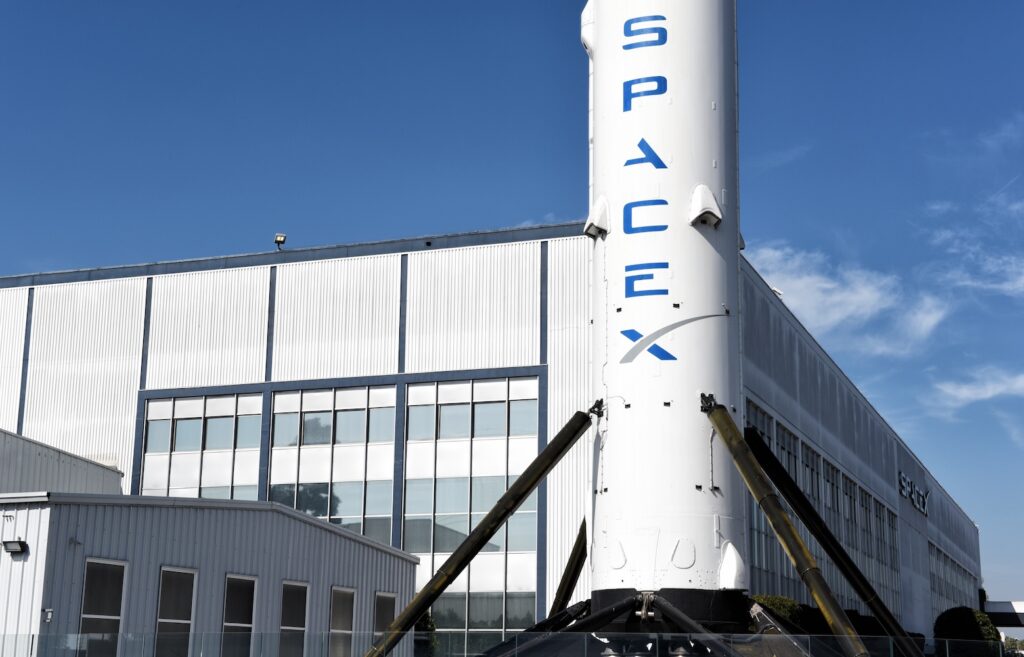Take Your Senator to Launch Day: Bill introduced by Missouri’s Eric Schmitt to help private companies win space race for U.S.
Space entrepreneurs such as Elon Musk have become key to America’s winning the space race with China – and a bill from Missouri Senator Eric Schmitt aims to help.
The Launch Communications…

Space entrepreneurs such as Elon Musk have become key to America’s winning the space race with China – and a bill from Missouri Senator Eric Schmitt aims to help.
The Launch Communications Act, which passed the House Wednesday and is the first bill introduced by Schmitt to pass both chambers in Congress, would streamline the government’s granting of upper-atmosphere communications licenses for commercial space launches.
“Essentially, as a rocket would go from Earth into space, there’s different bands of spectrum that you need to be able to communicate back down to Earth,” Schmitt told The Heartlander in an exclusive interview Thursday. “You’ve got to be able to communicate as you go higher and higher into the atmosphere and into space.
“What this would do, it would modernize that [FCC} application process, make it easier. There are launches that are delayed or canceled because of the bureaucratic red tape right now. And so, we want to streamline that so we can have the best innovation and the most launches in the world.”
Indeed, According to the Federal Aviation Administration, commercial launches into space increased from 79 in 2022 to 117 last year.
Musk’s SpaceX has even been awarded a contract by NASA to rescue and retrieve two stranded astronauts from the International Space Station (ISS) early next year, following problems with the Boeing craft that took them there.
With President Barack Obama’s decision to end NASA manned flights after the last shuttle’s landing in 2011, the U.S. is, in fact, relying almost entirely on commercial space companies.
Schmitt sees the work of space entrepreneurs Musk, Richard Branson and Jeff Bezos not only invigorating but also critical to national security.
“Yeah, this is a really exciting development, that we have the private sector now fully engaged in commercial space exploration,” Schmitt says. “I had an opportunity to visit SpaceX this summer. Elon Musk, I mean, they’re talking about being on Mars in, like, six or seven years. So, this is exciting.
“But it’s also a very important strategic goal of the United States. We have to win the space race against the Chinese.”
The companies’ efforts will be needed not just to reach the ISS, but to do such things as explore asteroids and launch satellites.
“All those sorts of things are in play, and we want to make sure the United States of America is the leader and we win that race against Communist China.”
Schmitt says he hopes his bill, which now goes to President Joe Biden’s desk, will increase private innovation in space, as well as the number of innovators.
“We do need more players. We do need more innovation. You’ve seen a consolidation of contractors, and that’s not a healthy thing for innovation. I do think there needs to be more opportunities for more players to innovate.
“And it can be related to these launches, but certainly as it relates to weapons systems, we’re entering sort of a new phase where you have asymmetrical weaponry [in which] an autonomous drone can take out a multibillion-dollar asset, whether it’s at sea or in the air, and so we need to deal with that and we need to be nimble enough to do it.
“To do that, you just have to have more players. We’re working on that in the Armed Services Committee. I’m supportive of a provision that has a little bit of a carve-out for the smaller players to access, because we need that kind of innovation, and we need that kind of resiliency in our military industrial base.”



